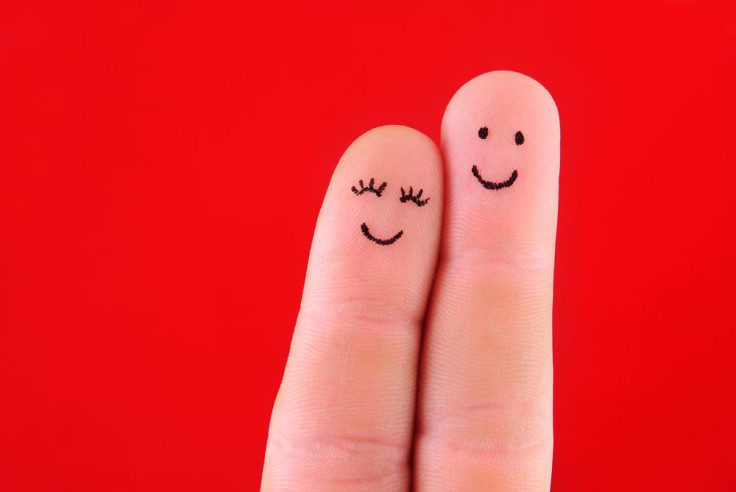Can’t Touch This: Forget About Sneezes, Here Are 4 Common Social Interactions That Result In Germy Exchange

Every day we come into physical contact with others without even thinking about it. Most times there is no consequence, and our immune systems are able to fight off any pathogens we didn’t even know we picked up. While coughing and sneezing has gotten a bad rap for passing on illness, most aren’t aware that other interactions are capable of spreading equally unwanted or even more dangerous forms of contagion. But as for which social interaction has the worst consequences, well that’s up to you to decide.
Hugging
Hugging, as innocent as it may seem, has been responsible for spreading asbestos in the past. The BBC played the story of Trevor Albury, a 68-year-old man who contracted mesothelioma from hugging his father as a child. Albury’s father was a factory worker and unknowingly carried asbestos home on his clothing every day. The time between first exposure to asbestos and diagnosis of mesothelioma is usually between 20 and 50 years, according to the American Cancer Society. Through hugging his father as a child, Albury breathed in the dangerous substance and developed the illness later in life.
Unfortunately, this is not an isolated event. The Daily Mail reported another patient, Annette Bhatti, who had also developed mesothelioma from hugging her father who used to work on a shipyard. The unexpected emergence of “asbestos wives and daughters” has been noted by doctors and lawyers, who attributed it to women being exposed to the mineral by male relatives who worked in asbestos-heavy industries, Reuters reported.
Asbestos was made illegal in 2000, so it is significantly less likely that a hug will pass on the illness in modern days, but in the past this type of interaction could have been a death sentence.
Kissing
Human papillomavirus, is responsible for five percent of the world’s cancers, and many researchers believe this type of cancer can be spread via kissing. HPV is the most common sexually transmitted disease, and each year 14 million Americans become infected. Exactly how this virus is able to spread so far so fast is not quite clear, but according to Medical News Today, a recent Canadian study may have found the answer.
"Our work provides additional evidence that HPV is sexually transmitted to the oral tract through oral-to-oral and oral-to-genital contact," said lead researcher Dr. Eduardo Franco, explaining that both oral sex and kissing may be via methods of transport for this common virus.
Infectious mononucleosis, or mono as it’s commonly called, is a virus which can cause fatigue, a sore throat, fever, swollen lymph nodes, and a headache. It’s caused by the Epstein-Barr virus, and it's most commonly transmitted via kissing, which is where it got its name for “the kissing virus.” According to the CDC, around 25 percent of teenagers and young adults will become infected with this virus. It’s usually not very serious but can leave a person with a general unwell feeling for weeks.
Sharing Utensils Or Drinking Glass
Many don’t think twice about taking a sip of someone else’s drink or borrowing a fork to eat with, but according to the World Health Organization, a seriously nasty infection is spread through this sort of behavior.
Hand, foot, and mouth disease is an infectious disease characterized by fever, painful sores in the mouth, and a rash with blisters on the hands, feet, and buttocks. Sharing a glass or eating utensils with infected individuals is one way to pass on the infection.
St. Joseph County Health Interim Officer Dr. Dave Deardorff explained to WSBT 22 just how contagious the infection is. “The reason kids are getting sent home from school is because you can contaminate objects with the virus," he said.
Thankfully although the infection is unpleasant and hard to look at, it is not usually dangerous.
Handshake
Europeans may be right in their preference for the cheek kiss over the handshake. Shaking hands can spread a plethora of illness, and many of these are quite unpleasant. The Daily Mail reported that according to Professor Sally Bloomfield from the London School of Hygiene, "The hands are critical in the chain of infection as they transmit infections from surfaces to people and between people.”
Bloomsfield added that while people may be hesitant about kissing others when they have a cold, in reality, they are more likely to pass on the virus through a handshake.
Norovirus is a group of viruses which causes vomiting and diarrhea. The Centers for Disease Control and Prevention estimates that each year 19 to 21 people become sick from a norovirus. Of these, around 56,000 to 71,000 require hospitalization, and of those, 570 to 800 die. The virus can be found in vomit and stool of infected people and can be spread through physical contact with a person who has not washed their hands thoroughly.
Escherichia coli, also known as E.coli, is a strain of bacteria that normally lives in the intestines of people and animals. When ingested, this bacteria can causes acute to severe diarrhea, abdominal cramps, bloody diarrhea, and vomiting. A recent study found that handshakes transmitted the highest amount of E.coli between person to person, Medical News Today reported.
"People rarely think about the health implications of shaking hands," said Dr. Dave Whitworth, lead researcher on the study. "If the general public could be encouraged to fist bump, there is genuine potential to reduce the spread of infectious diseases."
Published by Medicaldaily.com



























